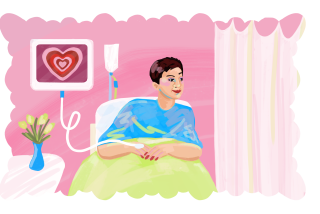He’s Doc -- not Mr. Popularity
- Share via
I ran into him in the toothpaste aisle of the local Rite Aid last week. He was a patient of mine but I hadn’t seen him in a while. I was embarrassed to admit that I couldn’t remember his name. Nice guy, about my age, though he appeared to think it was still 1968 with his tie-dyed T-shirt. I had just snagged some dental floss so I could rack up three or four days of flossing before my visit with the dentist.
He took one look at me and said somewhat sheepishly, “Hey, Doc! I gotta see ya soon.” (I always wonder, when they call me “Doc,” if they don’t remember my name either.) Then he shuffled on, and I was left to ponder what he had said. You see, he wasn’t the first one, upon seeing me, to blurt out that he had to come see me soon.
I felt a little like a preacher must feel if he runs into a sporadic church attendee (Christmas and Easter services, perhaps -- on a good year). There’s a little guilt about not going to church, and you tell the preacher you’ve resolved to come more often.
It made me wonder what it is about doctors that generates the same response.
I mean, this guy didn’t have anything seriously wrong with him, as far as I could tell. His modest belly certainly spoke to the fact that he wasn’t malnourished. He recognized me, so his memory was pretty good. He didn’t have any jagged shards of bone sticking out from any extremities. And he certainly wasn’t hemorrhaging in the toothpaste aisle.
Perhaps he figured it was time for his annual exam, everybody’s favorite way to spend a couple of hours (an hour waiting, half an hour with the doctor and another half-hour to wait some more just for good measure). There was cholesterol and blood pressure to be checked, and that pesky prostate to keep tabs on. And he hadn’t done it yet and he felt guilty.
It’s strange to be in a business where at least several times a week I hear, “No offense, Doc, but I hope I don’t see you again for a long time.” And it’s not just the folks who are overdue for their annual exams.
There are also the ones who announce, almost in a tone of defiance as I enter the exam room, “I don’t like doctors!” I can’t tell you how many times I’ve heard that.
I’m usually polite and take those comments in stride. However, once during a particularly busy shift in the ER, when I was a little punch-drunk from all the patients, I thought I’d have a little fun (doctors are allowed to do that from time to time). I looked at the patient and broke into a big smile and replied, “Well, it looks like you’re in luck! You see, I don’t like patients either, so why don’t we call it quits right now?” He looked at me, confused. He wasn’t expecting that.
Maybe such patients are implying that, over the years, they’ve run into a few too many doctors who played hooky from the “developing a good bedside manner” lectures, as if there were such a thing. And now they just need a little TLC.
But I think the real reason for both of these kinds of responses is that we in the medical profession have done an excellent job of finding problems -- and, to our credit, in fixing them. That’s the focus of our training: seek and destroy. I like to kid patients that if I look hard enough I can find something wrong with just about anybody. They never seem to think that’s funny. They’re afraid that, yes indeed, I’m going to look until I find something -- and when I do, boy, is it going to be bad.
In my neck of the woods, perennially gray Seattle, the latest thing to look for is a low level of vitamin D. Up here, it is the unusual person who has a normal amount of this stuff.
In men, I sometimes uncover a low testosterone level, and they don’t like it one bit. (I’m afraid to get mine tested.)
To complicate things, the medical policymakers have changed the parameters for some conditions. What used to be considered a normal blood pressure is now “pre-hypertension.” A borderline glucose level now means that you are “pre-diabetic.”
It’s supposed to be a wake-up call to pay a little more attention to your health, but patients don’t always see it that way. They feel fine just as they are, thank you very much, and they don’t want to be saddled with another problem to deal with.
And there are plenty of tests that raise the art of medical snooping to new levels: bone density X-rays, coronary calcium scans, carotid artery ultrasounds.
Yes . . . if we look hard enough, we can find something wrong, no doubt about it!
So it is true that going to the doctor’s office is often a time of anxiety. What will the doctor find? How bad can it be? Good grief, maybe he’ll tell me for the umpteenth time how I need to get in shape, eat better, lose some weight and stop smoking.
A clinic in an upscale neighborhood nearby recognized that men are often the biggest foot draggers when it comes to going to the doctor. They sought to make it a better experience by marketing it with an automotive theme. And they did a great job too: Car and Driver magazine in the lobby, NASCAR photos on the wall. They even had a “menu” of things you could ask for when you made your appointment. My favorite was “the lube job” for when you wanted your prostate checked.
I think that clinic went out of business. In the last analysis, no matter how neatly we package the experience, we still don’t like going to the doctor, myself included.
Maybe after I lose a few pounds. Until then, if I run into my doctor in the store, I’ll have my line ready: “Hey, Doc! I gotta see ya soon.”
--


